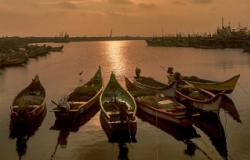
Goal 14 of the United Nations Sustainable Development Goals recognises the continued pressure on marine ecosystems and the need to implement performance based management arrangements for fisheries. Reformulating governance arrangements are prerequisites for achieving this: rectifying gaps while giving effect to existing hortatory obligations enable effective management decisions including for new and/or emerging issues such as climate change. This is particularly evident in the Indian Ocean, which is surrounded by developing states, and where the climate change impacts already evident. Indian Ocean fisheries governance arrangements are also imperfect: there is incomplete coverage of highly migratory species and high seas areas; and no one organisation where all relevant states share membership. Furthermore, the limited resources of developing coastal states restricts the ability to effectively understand and sustainably manage the resources. If developing coastal states are to meet 21st century challenges, governance arrangements must be modernised to address species, spatial and membership gaps while supporting the implementation of hortatory obligations and ocean-wide, cross-sectorial and cross-jurisdictional programs that: facilitate ocean-wide scientific monitoring of ecological processes and anthropogenic impacts, and enable integrated monitoring, control and surveillance (MCS) of fishing with the adopted management measures to improve certainty of the management.